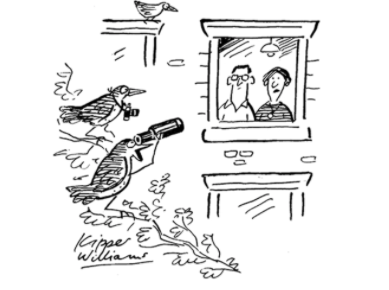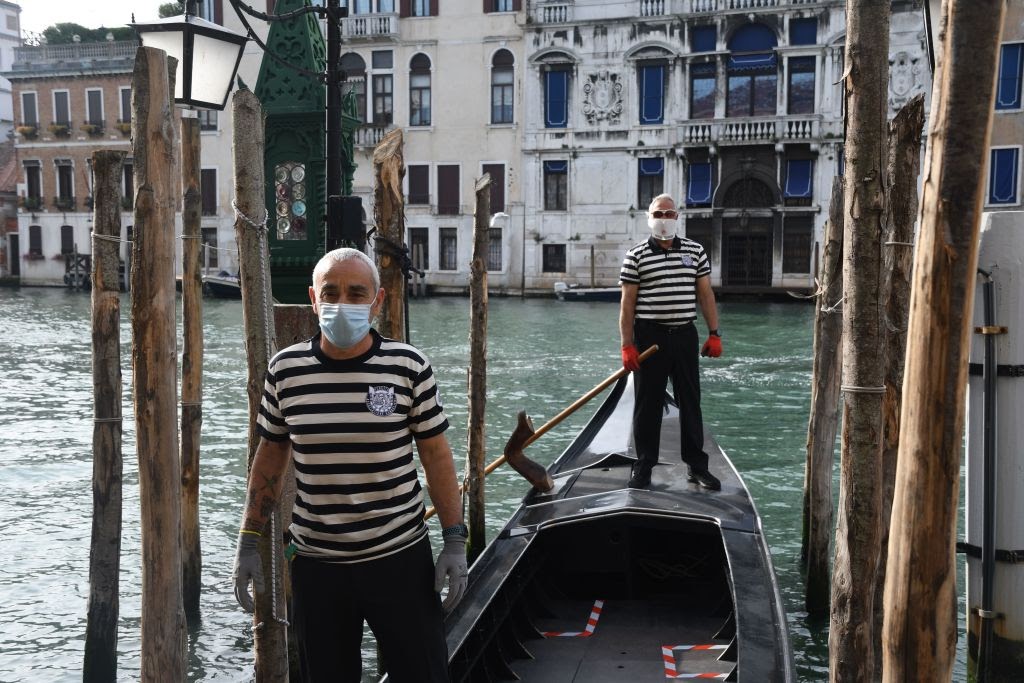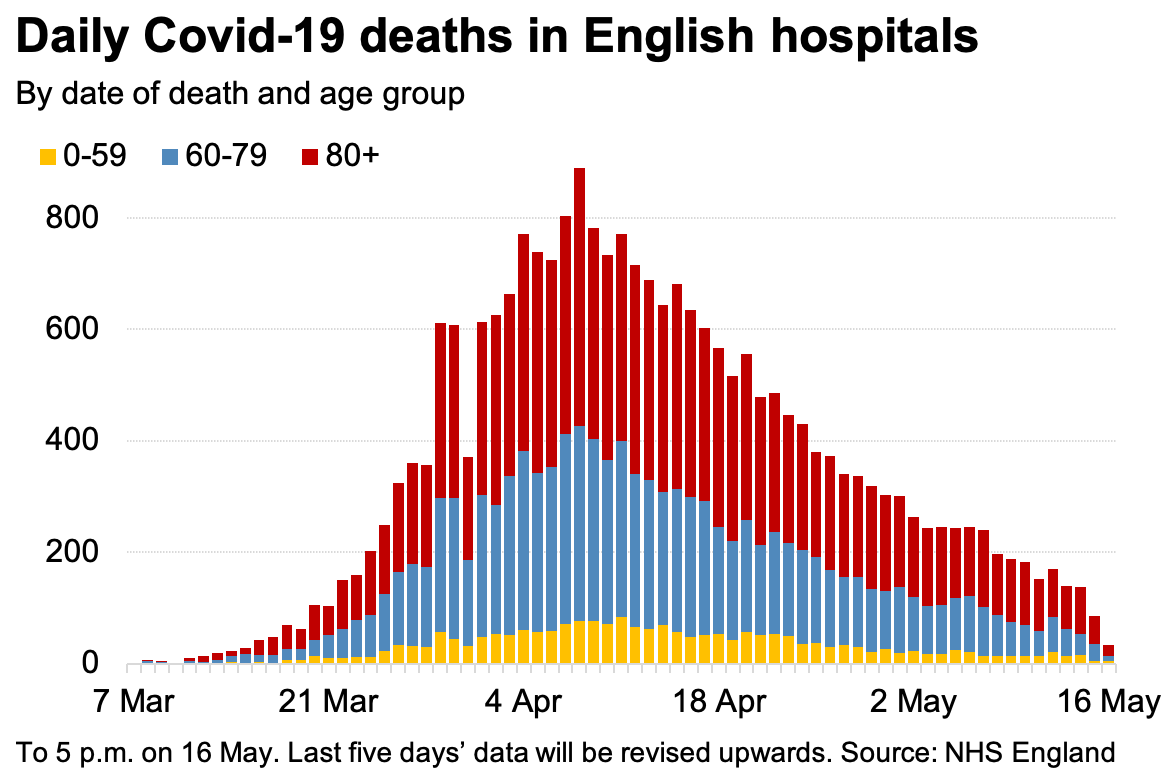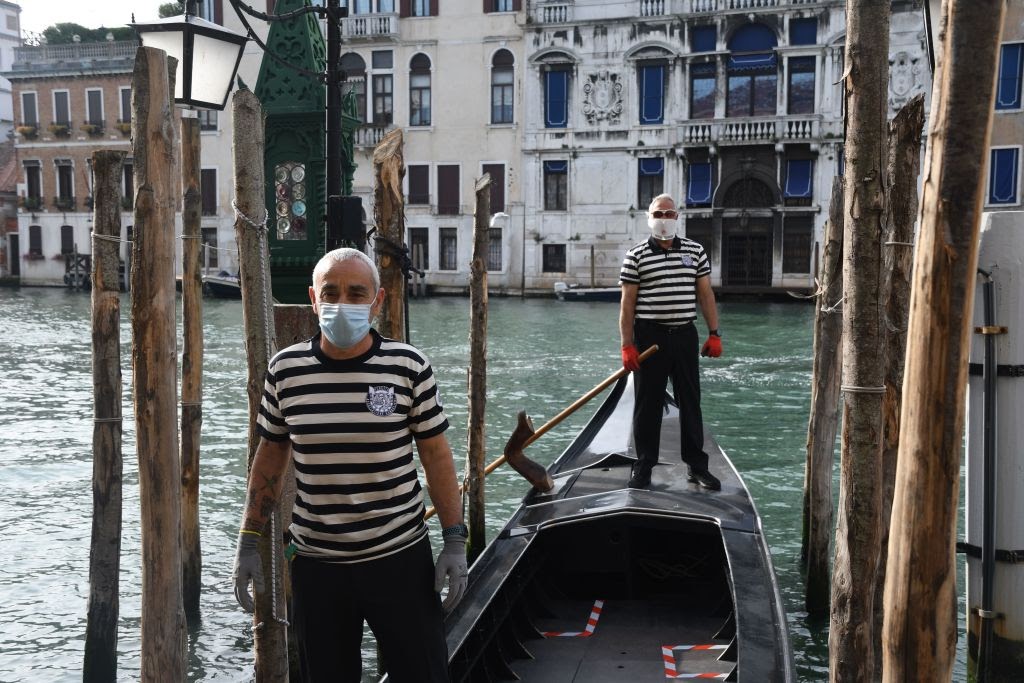The Spectator brings you the latest insight, news and research from the front line. Sign up here to receive this briefing daily by email, and stay abreast of developments both at home and abroad.
News and analysis
- Children from better-off families spend 30% more time on home learning than those from poorer families, according to new research from the Institute for Fiscal Studies.
- Missing a third of a year of school could cut pupils’ lifetime earnings by 4%, a German study says. More below.
- More than 500,000 people have accessed a suicide prevention course over the past three weeks, according to a suicide prevention charity.
- Trains in England are running at increased frequency and stations have put in place crowd control measures. The controls come in anticipation of greater passenger numbers after lockdown was eased last week.
- Some 30 million vaccine doses could be ready by September, Business Secretary Alok Sharma has claimed – if UK trials prove successful. Ross Clark has the details below.
- The UK could be under-reporting Covid-19 infections by up to 70,000 cases. Professor Tim Spector from King’s College London told Radio 4 that many symptoms are being ignored.
- A report by the Social Market Foundation says residents near parks should pay a tax to help maintain them.

‘Then lockdown happened and I started getting interested in them.’
Measuring the damage of lockdown school closures
The economy might rebound – but school closures cause permanent damage and deepen inequality according to a study by Ludger Woessmann, Director of the Ifo Center for the Economics of Education in Germany. (Here’s the pdf.) ‘Each school year of additional learning increases life income by an average of around 10 per cent,’ it says – and makes you more likely to be employed. ‘Students who lose around a third of a school year’s study time will on average receive approximately 3 per cent to 4 per cent less income over the course of their professional lives.’ This follows a Norwegian study which argued the same. The authors say that their findings have been reinforced by several studies the world over which show a close link between learning and salaries: ‘In empirical economic research, there are hardly any more robust findings than the positive influence of school attendance and the acquisition of competence on economic well-being.’
In pictures

In words
In our commercial reality, we would fire anyone for developing code like this and any business that relied on it to produce software for sale would likely go bust.
– David Richards, co-founder of British data technology company WANdisco on the Imperial College London modelling that led to lockdown.
A shot of reality
by Ross Clark
The government has agreed a deal with AstraZeneca and Oxford University to produce 30 million shots of a vaccine by September – if its trial proves successful. Does the government know something the rest of us don’t, or is it yet another case of ministers having larger wallets than brains? Human trials of the vaccine only began four weeks ago, and Sir John Bell, Regius Professor of Medicine at Oxford University, is on record as saying that the first signs of whether it will work or not won’t be available until mid-June. All we know so far is that the vaccine appears to have been successful in half a dozen monkeys. Will this be added to the list of failed sourcing along with defunct antibody tests and ventilators from China and below-standard PPE gowns from Turkey?
Money has to be spent on research without knowing if anything good will come, but ordering mass-produced vaccine shots before we know if they will work is looking like another possible folly in a crisis which has produced plenty of them already.
Read more from Ross Clark on Coffee House.
Global news
- Xi Jinping has addressed the World Health Organisation’s annual summit today, and announced that if a vaccine is made in China, it will be available to the rest of the world. Meanwhile, 116 countries have co-sponsored a motion calling for an independent investigation into the origins of the virus.
- India has extended its nationwide lockdown until 31 May, although many areas have already begun to relax measures.
- At least 15 American hospitals have closed this year, with many blaming a lack of patients due to the pandemic.
- Kuwait and Qatar have announced possible prison sentences for people who fail to wear a face mask in public.
- Some 30,000 pre-school staff in Singapore will undergo testing by 26 May before returning to work.
- Thousands of personnel have extended their service in the US military amid the economic uncertainty caused by the pandemic.
- St Peter’s Basilica in the Vatican reopened today while Italy reopened shops and restaurants after ten weeks of closure. The country hopes to reopen its borders to foreign travellers from June.
- Mount Fuji in Japan will close during this summer’s climbing season to curb the spread of Covid-19.
Datawatch

Our latest podcast
Research: vitamin D and Covid
The argument that deficiency in vitamin D may contribute to more severe cases of Covid-19 is gaining ground, Matt Ridley says on Coffee House. A deficiency may not make you more likely to catch Covid-19 – but it does seem to affect whether you get very ill from it. A recent study in Chicago concluded that its result ‘argues strongly for a role of vitamin D deficiency in Covid-19 risk,’ while an article in the BMJ cautiously recommends vitamin D supplements, confirming that many people in northern latitudes have poor vitamin D status, especially in winter or if confined indoors, and that low vitamin D status ‘may be exacerbated during this Covid-19 crisis by indoor living and reduced sun exposure’. Very high intakes can cause harm – but the evidence is easily strong enough to justify telling people to take modest supplements for their health, Matt concludes.
Coronomics
- Some 30% of the lowest-paid fifth of UK workers have been placed on furlough or lost their jobs, compared to just 9% for the top fifth of earners.
- A new study claims readings of some air pollutants in China have risen to pre-lockdown levels.
- Apple has now reopened nearly 20% of its global stores.
- The price of gold has reached its highest levels since 2012, amid predictions that the pandemic will drive up inflation.
- The Bank of England is considering negative interest rates: ‘How could we not be?’, Bank chief economist Andy Haldane told the Telegraph.
More from The Spectator
Jonathan Sumption: ‘You cannot imprison an entire population’ – Jonathan Sumption
Sweden has pioneered an alternative to lockdown – and it works – Fredrik Erixon
Ten reasons to end the lockdown now – Dr John Lee
This is not a natural disaster, but a manmade one – Lionel Shriver
My fears about the ‘new normal’ – Claire Fox
Self-isolation tips from Spectator Life
How to write a realistic lockdown bucket list – Bryan Matthews
How to make the perfect toastie – The Vintage Chef, Olivia Potts
Weekly trivia: why was Mambo No.5 vetoed as a Democrat theme tune? – Mark Mason






Comments